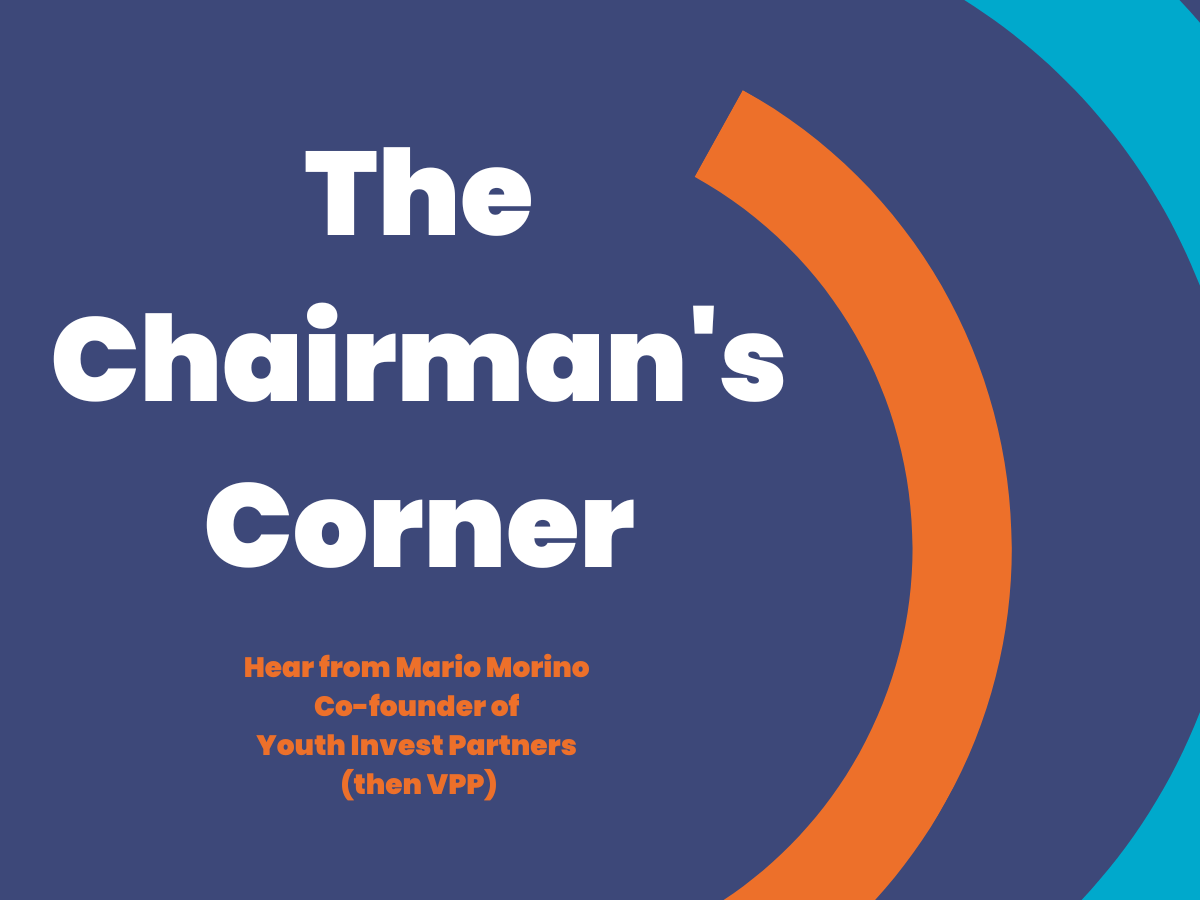Chairman’s Corner: September 2002

by Mario Morino, Co-founder of VPP
When VPP investment partner Heads Up, a provider of high-quality tutoring and mentoring programs to children in the District, completed its comprehensive planning effort early this year, it began pursuing a promising new funding stream through the DC government. Unfortunately, Heads Up has run headlong into the city’s budget woes. At a time of increased need, the city has been forced to severely curtail the subsidy program.
We hope and believe that Heads Up will eventually secure the DC subsidies. But the sad reality is that thousands of organizations throughout our region are feeling the pain of major government shortfalls. The shortfalls are hitting simultaneously at the federal, state, and local levels, exacerbating the effects of stock-market-related declines in charitable giving.
In just the past week, federal budget forecasts have taken a turn for the worse. As recently as last year, the Congressional Budget Office estimated that the country would run up a budget surplus of $5.6 trillion over the next ten years. By January 2002 the projection had fallen to $1.6 trillion. Last week, the figure plummeted further, to $336 billion. In a year and a half, more than $5 trillion in projected surpluses has vanished before our eyes.
How did so much money vanish so quickly? About 20 percent of the decline can be traced to increased spending, primarily on defense and homeland security in the wake of September 11. Another 40 percent is the result of the economic decline and technical changes in the estimate. The remaining 40 percent is the result of the large tax cuts signed into law by President Bush last summer.
The state situation is just as troubling. Virginia Governor Mark Warner managed to close a $3.5 billion budget shortfall earlier this year, but it wasn’t enough. He recently told legislators that the budget situation had deteriorated further and that the Commonwealth would “be forced—out of necessity—to reconsider what is typically considered exempt” from cuts, including primary and secondary education and health care. Meanwhile, Maryland and DC are facing revenue shortfalls of $1 billion and $200 million, respectively, and will be forced to make some of the same Solomon’s choices.
Given these dramatic government shortfalls, private funders need to think long and hard about how they can help their grantees and investment partners through this difficult time—not just with money but also with other forms of support. For example, funders can and should play a role in helping community organizations amplify their voices when government budgets are being appropriated and allocated; many established philanthropic institutions are already very good at this, and new funders like VPP can learn much from them. Funders can also help partners learn how they can diversify their funding base. And they can make introductions to business, philanthropic, and government leaders that could lead to new funding relationships.
There are no easy answers to these funding gaps. But VPP and other private funders must step up to the plate. Our help has never been more important.



